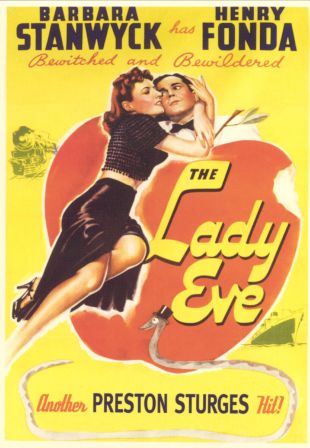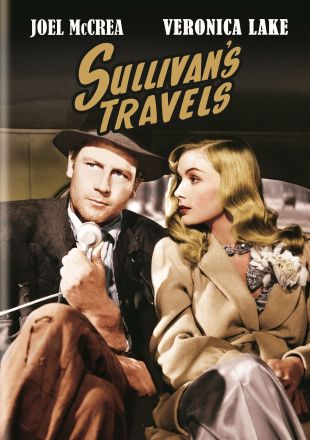When he died in early 1965, Julius Tannen rated an obituary in Variety covering the better part of a page. That may surprise anyone who is wondering "Who was Julius Tannen?" -- viewers who have seen Stanley Donen's Singin' in the Rain, or the sophisticated comedies of Preston Sturges, however, have likely delighted in Tannen's work, even if they didn't know who he was. Born in Chicago and raised in a Jewish orphanage in Rochester, NY, Julius Tannen became one of the most celebrated and successful theatrical performers of his day, in a career that took him from the vaudeville stage into some of the most important movies ever made, and on to television before a return to the stage in his twilight years. Tannen didn't intend to become a performer -- he was making a living as a salesman, and his pitch to customers proved so engaging and funny, that he received offers to entertain at parties. He made his professional debut on the vaudeville stage in 1901, at age 21, and developed a particular comedic specialty as what was then called a "monologist" -- he would stand there and talk (today, it's called standup comedy). Among many techniques that he devised, one of his most popular was that of presenting a comic story and ending it before the payoff, leaving the audience to fill in the blank space. Tannen was the first successful modern practitioner of what is now known as the comedy monolog. He was also responsible for creating the exit phrase, "My father thanks you, my mother thanks you, my sister thanks you, and I thank you" -- certainly ironic in view of his background as an orphan, this phrase, heard by a young George M. Cohan (who was then performing with the Four Cohans), was adopted by him as his bow-off signature for the rest of his career, and immortalized in the movie Yankee Doodle Dandy. Tannen played the Palace Theater in New York more often than almost any other performer, and he subsequently made the jump to legitimate theater during the 1920s, performing in Earl Carroll's Vanities and the George White Scandals. He'd already been performing professionally for three decades when the advent of talking pictures created a need for actors who could handle spoken dialogue. His first film was Lady By Choice, starring Carole Lombard, in which he played a small role. Over the next 15 years, Tannen portrayed dozens of lawyers, clerks, journalists, and police detectives, usually (but not always) unnamed in the credits. He started getting bigger roles in the late '30s, in everything from light comedies to serious dramas such as Frank Borzage's The Mortal Storm (1940). He joined the stock company of director/writer Preston Sturges with the latter's second movie, Christmas in July, and was aboard for The Lady Eve, Sullivan's Travels, and The Palm Beach Story, and he enjoyed still larger roles in the director's final Paramount films. He continued working with Sturges right up through Unfaithfully Yours. It was with director Stanley Donen, however, that Tannen scored what may have been his most prominent screen appearance, in the movie Singin' in the Rain. Tannen appears in the opening section of the movie, as the man in the short film shown at the Hollywood party, introducing sound movies ("This is a talking picture...") -- to anyone knowing the man and the history, the in joke was priceless, the world's best stage monologist debuting talking pictures. Tannen subsequently worked in the Elvis Presley film Loving You (1957) and was apparently a favorite of director John Sturges, who used him in The People Against O'Hara (1952) and The Last Train From Gun Hill (1959). Tannen retained his comic edge and melodious voice into his seventies -- on December 2, 1954, he appeared on The George Gobel Show (in a program available on video) in a sketch where he ran circles around the star, and he earned a special curtain call from Gobel. He continued performing until 1964 when he suffered a stroke at the age of 84; he died the following year. His son, Charles Tannen (1915-1980), who looked like an identical but younger version of Julius Tannen, was a very busy character actor in his own right, with film credits dating from the mid-'30s to the early '60s, before he joined CBS as an executive.
Julius Tannen
Share on


